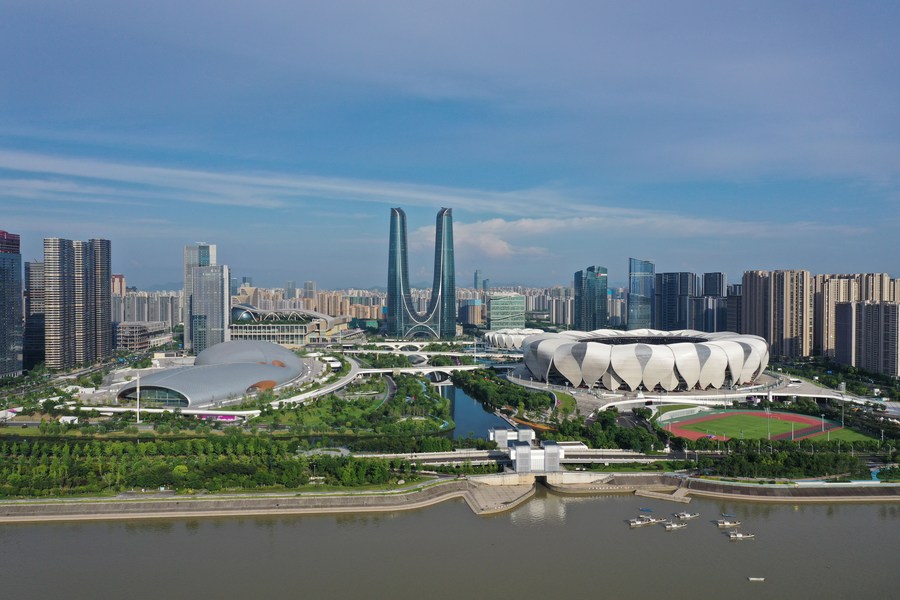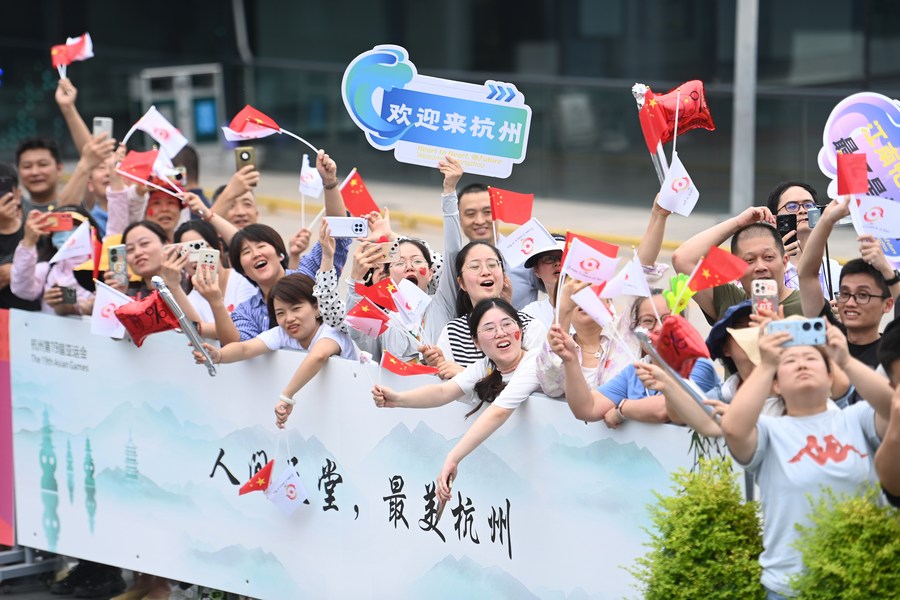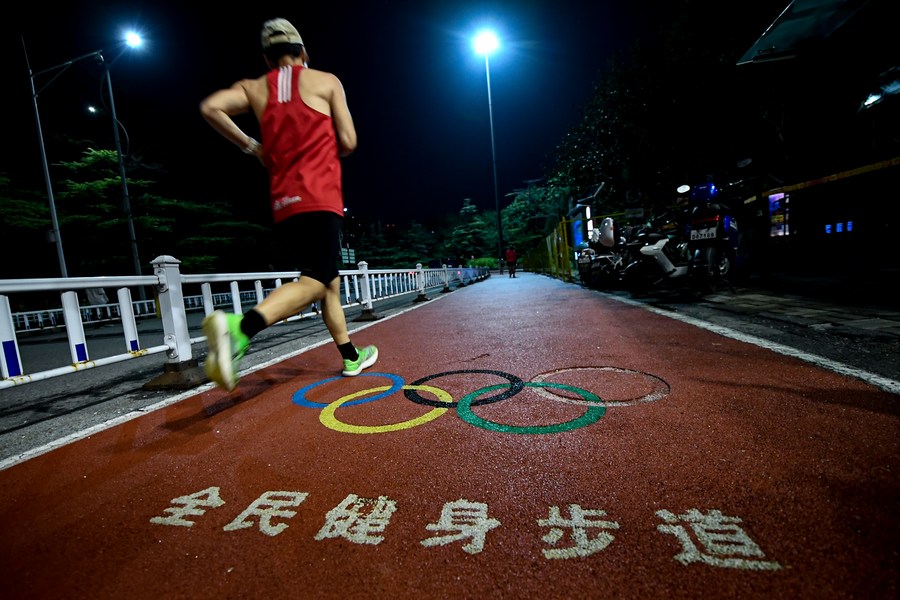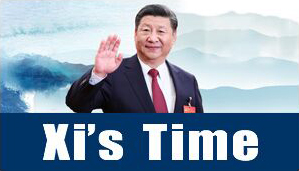
This aerial photo taken on June 28, 2023 shows the Hangzhou Olympic Sports Center in Hangzhou, east China's Zhejiang Province. (Xinhua/Huang Zongzhi)
HANGZHOU, Sept. 21 (Xinhua) -- What do sports mean for Chinese President Xi Jinping? A hobby, a means to cultivate a strong nation, or an approach to his global vision?
One may find some clues to the answers in a reply letter Xi sent to the U.S.-China Youth and Student Exchange Association and friends from the state of Washington in August. He wrote, "Sport is a bond that promotes friendship among peoples."
As the leader of a country that has hosted both the summer and winter editions of the Olympics in less than two decades and will soon host the 19th Asian Games, Xi clearly understands the constructive role sports games play in global governance.
"We should promote solidarity through sports, build up positive energy across the international community, join hands to tackle global challenges such as climate change, food crisis and terrorism, and shape a better future through cooperation," Xi said in July as he welcomed guests attending the opening ceremony of the 31st summer edition of the FISU World University Games in the Chinese city of Chengdu.
During multiple foreign trips, the president chose sports as a bridge to reach out to local people.
During a state visit to the United States in 2015, Xi watched an American football training session of students from the Lincoln High School in Tacoma.
He was presented with a ball and a jersey by the students. In return, Xi gave them gifts, including a ping-pong table.
When visiting the headquarters of the International Olympic Committee (IOC) in Switzerland in 2017, Xi gave the committee a magnificent piece of Suzhou embroidery featuring ancient Chinese ladies playing cuju, which is considered the earliest form of football.
The artifact showcases the inseparable connection between ancient Chinese cuju and modern football and, more importantly, exemplifies the cultural exchange and mutual learning facilitated by the universal language of sports.
During that visit, IOC President Thomas Bach said, "President Xi is a true champion, and I want to give him a set of medals because he has a clear vision about the important role of sports in society and the importance of sports for education for the young people."

People cheer for torch bearers during the torch relay of the 19th Asian Games in Hangzhou, capital of east China's Zhejiang Province, Sept. 20, 2023. (Xinhua/Huang Zongzhi)
STRONGER CHINA, HEALTHIER PEOPLE
"Sports set the stage for a stronger and more prosperous country," Xi said in 2017. The statement speaks volumes about the role sports play.
In early January last year, when inspecting the preparatory work for the 2022 Olympic and Paralympic Winter Games in Beijing, Xi noted that the ultimate goal of building a sporting powerhouse and a healthy China is to enhance the public's health, fitness and happiness. This aspiration is essential to China's wider endeavor to build a modern socialist country in an all-round manner.
Driven by Xi's instructions and relevant major decisions made by the Central Committee of the Communist Party of China, China has made headway in building itself into a leading country in sports.
By the end of 2022, the country had 4.23 million sports venues covering a total area of over 3.7 billion square meters. More than 500 million Chinese regularly exercise and over 90 percent of the whole population meet national physical fitness standards.

A citizen runs at National Olympic Sports Center, which was built for Beijing 1990 Asian Games in Beijing, capital of China, Aug. 20, 2023. (Xinhua/Chen Zhonghao)
International sports events held in China spark waves of enthusiasm for sports in the host cities and the whole country, effectively contributing to China's fitness development.
Before the 12,000 athletes gather in Hangzhou, the Asian Games' 56 competition venues and 31 training venues, which were opened to the public in the run-up to the event, have welcomed nearly 10 million people to do exercises.
Similar scenes were seen before and after the Winter Olympics in Beijing, as Chinese passion for winter sports soared.
Speaking of the success of the Winter Olympics, Xi highlighted the combination of hosting the Games with serving the people, and said that national fitness campaigns have been strengthened through the promotion and popularization of ice and snow sports.
In the August letter, Xi wrote that the Chinese government and people have full confidence in hosting a splendid Asian Games in Hangzhou.
This will be the third Asian Games in China and another platform for people from different regions and cultures to make friends and uphold the ideal of peace, as well as a window for the rest of the world to see China with their own eyes.
President Xi's dedication to sports as a way to promote national health and global solidarity highlights the crucial role of sports in China's development. As China invests in sports infrastructure, promotes healthy living, and hosts international events, it demonstrates its cultural heritage and extends an invitation to the world to enjoy the universal language of sports, friendship and peace. ■




